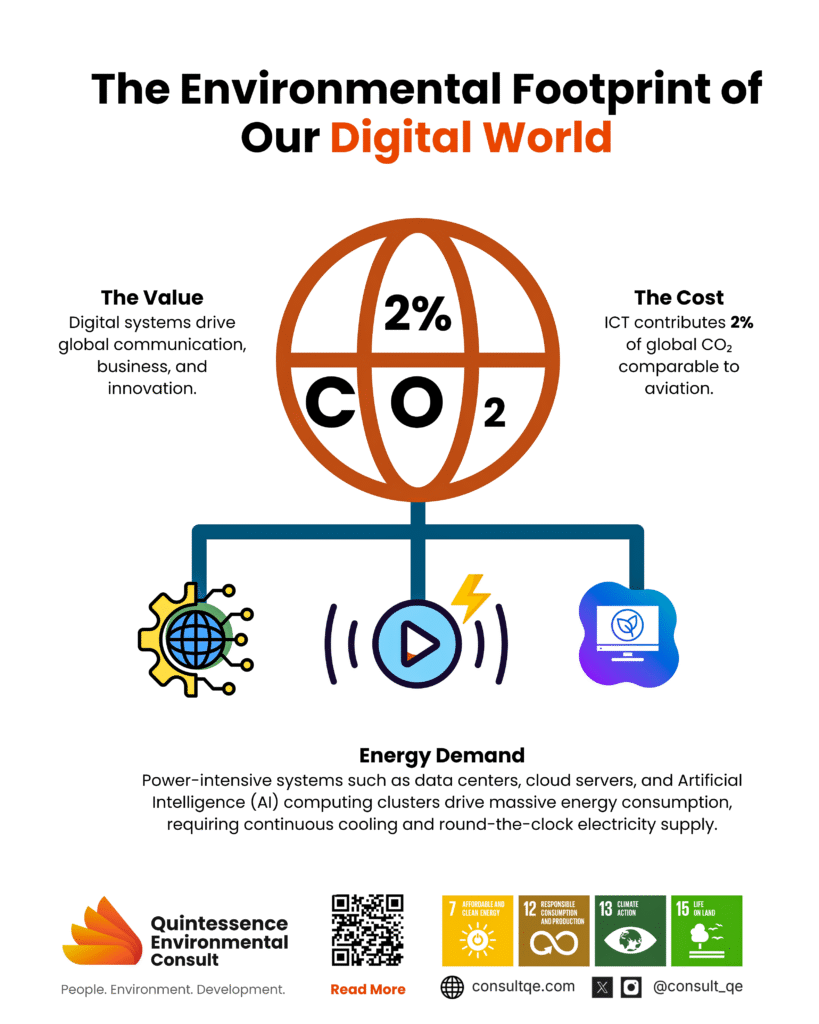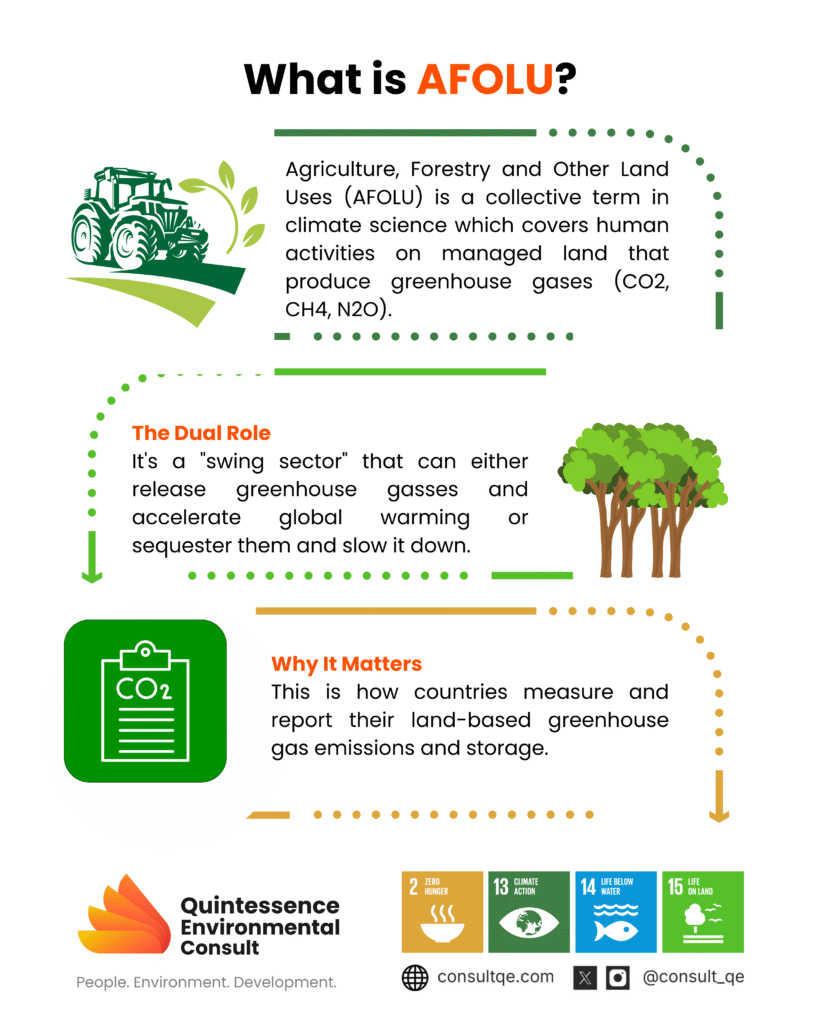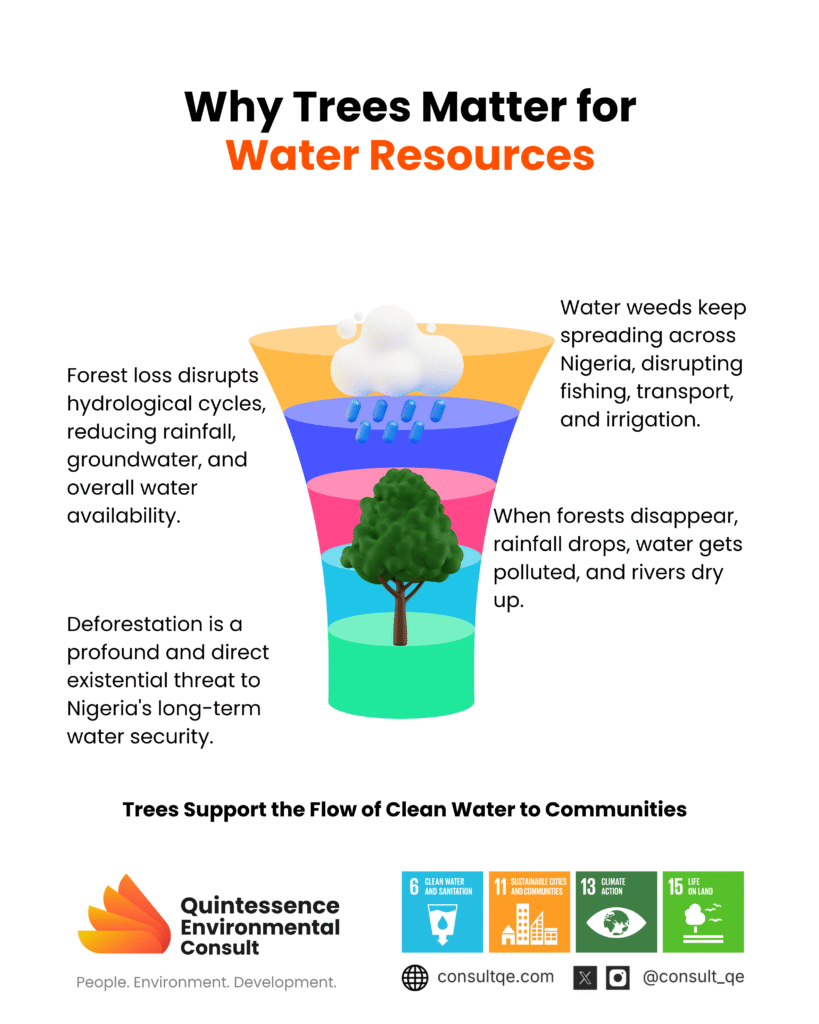Connected But Costly: The Environmental Footprint Of A Digital World

The global Information Technology (IT) ecosystem is often perceived as a realm of dematerialization, a transition to intangible data streams that leave no physical trace. This perception, however, masks a profound and destructive physical reality. The massive, interconnected infrastructure that supports our digital world, from colossal data centers to specialized Artificial Intelligence (AI) chips, is constructed upon a foundation of intense resource extraction, astronomical energy demand, and persistent environmental debt .
This defines a critical paradox: the very technology designed to connect and advance human civilization is accelerating planetary collapse by becoming a primary driver of biodiversity loss and contamination of soils, waterways, air, and even living organisms through toxic mining waste, chemical leaching, and persistent e-pollutants.
Reforming Nigeria’s Artisanal and Small-Scale Mining Sector: A Path to Sustainable Livelihoods

deposits of Plateau, Bauchi, and Kano, and the gemstone markets of Kaduna, ASM provides livelihoods where farming or other jobs are limited.
However, this lifeline comes with paradoxes. While ASM reduces rural poverty, supports households, and contributes to mineral output, it is also plagued by informality, unsafe practices, environmental degradation, and lost government revenue. Nigeria faces a crucial choice: continue to allow ASM to operate in the shadows, or reform it into a pillar of sustainable livelihoods and responsible mining.
The sector remains underdeveloped despite Nigeria’s mineral wealth across more than 500 locations in the 36 states and the Federal Capital Territory (FCT). The Nigerian Mining Corporation, once a leading producer, declined after the 1970s indigenization policy, and now contributes 4.38 per cent to the overall GDP in the first quarter of 2025, lower than the 5.47 per cent contribution recorded in the same quarter of 2024, according to the National Bureau of Statistics (NBS) latest GDP report.[14]
The underperformance stems largely from ASM-related challenges, including informality, weak regulatory oversight, insecurity, smuggling, and under-declaration of exported minerals.
Cultivating Change: Nigeria’s AFOLU Sector as a Cornerstone of Climate Action

The Agriculture, Forestry, and Other Land Use (AFOLU) is a collective term that categorises human activities influencing the movement of greenhouse gases, such as carbon dioxide (CO2), methane (CH4), and nitrous oxide (N2O), between the Earth’s surfaces and the atmosphere. Each time we choose to plant, to build, or which forest or wetland to protect, we’re shaping a global climate equation. This influence ranges from farming and livestock to forestry and the conversion or management of croplands, grasslands, savannas, wetlands, and settlements.
What makes AFOLU both compelling and consequential is its dual role. AFOLU “behaves like a swing”; meaning that, depending on how land is managed within the Agriculture, Forestry, and Other Land Use sector, it can either be a significant source of greenhouse gas emissions (by degrading ecosystems like deforestation) or a carbon sink (by actively planting trees and managing land sustainably), thereby impacting the rate of global warming. The Intergovernmental Panel on Climate Change (IPCC) assessments (2022) show that land use contributes roughly a fifth of total human greenhouse gas emissions.
Yet, the land surface, through forests and soils, also absorbs a significant share of human-generated CO2 (Carbon dioxide) through a process called carbon sequestration, acting as a natural carbon sink . This global swing is not abstract; its fingerprints are visible in everyday Nigeria’s day-to-day land choices.
Deforestation: A Critical Threat to Sustainable Water Resources

Nigeria, a nation rich in biodiversity, is facing the challenge of water scarcity. A significant, yet often underestimated, contributor to this is deforestation.
Forest ecosystems are integral in sustaining water resources by protecting river catchments, maintaining rainfall patterns, and filtering water naturally. (10) Forests significantly enhance soil moisture retention, minimizing surface runoff, storing considerable volumes of water within their canopy, and facilitating the gradual infiltration and percolation of water into the subsurface (3).
The continuous degradation and clearing of forest reserves in the country disrupts its natural hydrological processes, jeopardizing the sustainability of freshwater resources for millions (8).
Powering a Greener Tomorrow: Highlights from The DinSummit on Nigeria’s Sustainable Future

What if Nigeria could cut its carbon emissions, reduce air pollution, and expand clean energy access all at once? That bold vision took center stage at the 2025 Decarbonizing Infrastructure in Nigeria Summit (DINSUMMIT). With the theme “Unlocking Climate Finance for Sustainable Development,” the summit brought together key players from government, industry, and civil society to accelerate Nigeria’s transition away from carbon-intensive energy sources toward a sustainable, low-carbon economy.
For decades, Nigeria’s infrastructure has relied heavily on diesel and other fossil fuels to power construction, operations, and maintenance, especially in critical facilities like hospitals, schools, and government buildings. This dependency has led to high greenhouse gas (GHG) emissions, degraded air quality, and increased public health risks. To address this, the government, through the Office of the Vice President launched DINSUMMIT as a strategic response to the environmental and economic challenges posed by fossil fuel reliance.
